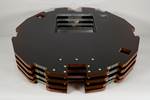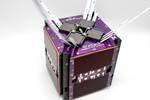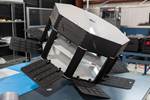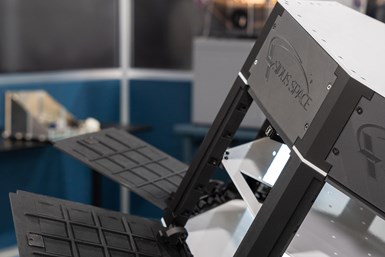Siddus Space launches composites-intensive LizzieSat satellite
LizzieSat offers space-based data collection and analysis for SpaceX’s Transporter-10 Rideshare mission.
Sidus Space (Cape Cavaveral, Fla., U.S.) a multi-faceted space and data-as-a- service satellite company, has announced that its LizzieSat satellite has successfully launched and deployed to low Earth orbit (LEO) as part of SpaceX’s (Hawthorne, Calif., U.S.) Transporter-10 Rideshare mission. Liftoff occurred at 2:05 p.m. PDT from Space Launch Complex 4 East at Vandenberg Space Force Base in California.
LizzieSat uses Onyx FRA along with continuous carbon fiber to reinforce the satellite structure and parts. The former is a flame-retardant variant of Onyx, Markforged’s (Waltham, Mass., U.S.) 3D printing material that can be reinforced with any continuous fiber.
LizzieSat is positioned to enable space-based data collection and analysis via its Space Platform with a Purpose and FeatherEdge AI integration. This mission aims to broaden its customer base across military and commercial sectors, offering tailored intelligence solutions for industries such as defense, agriculture, maritime, and oil and gas. Sidus Space anticipates upcoming missions, with LizzieSat-2 and LizzieSat-3, expected to launch on future SpaceX Rideshare missions.
According to space.com, Transporter-10 carries “multiple smaller payloads for a large number of customers. These launches offer a convenient and more affordable way for private companies to place satellites into orbit without the needing to wait and ‘tag along’ on the launch of a larger spacecraft.”
Related Content
-
A new era for ceramic matrix composites
CMC is expanding, with new fiber production in Europe, faster processes and higher temperature materials enabling applications for industry, hypersonics and New Space.
-
Cryo-compressed hydrogen, the best solution for storage and refueling stations?
Cryomotive’s CRYOGAS solution claims the highest storage density, lowest refueling cost and widest operating range without H2 losses while using one-fifth the carbon fiber required in compressed gas tanks.
-
PEEK vs. PEKK vs. PAEK and continuous compression molding
Suppliers of thermoplastics and carbon fiber chime in regarding PEEK vs. PEKK, and now PAEK, as well as in-situ consolidation — the supply chain for thermoplastic tape composites continues to evolve.














